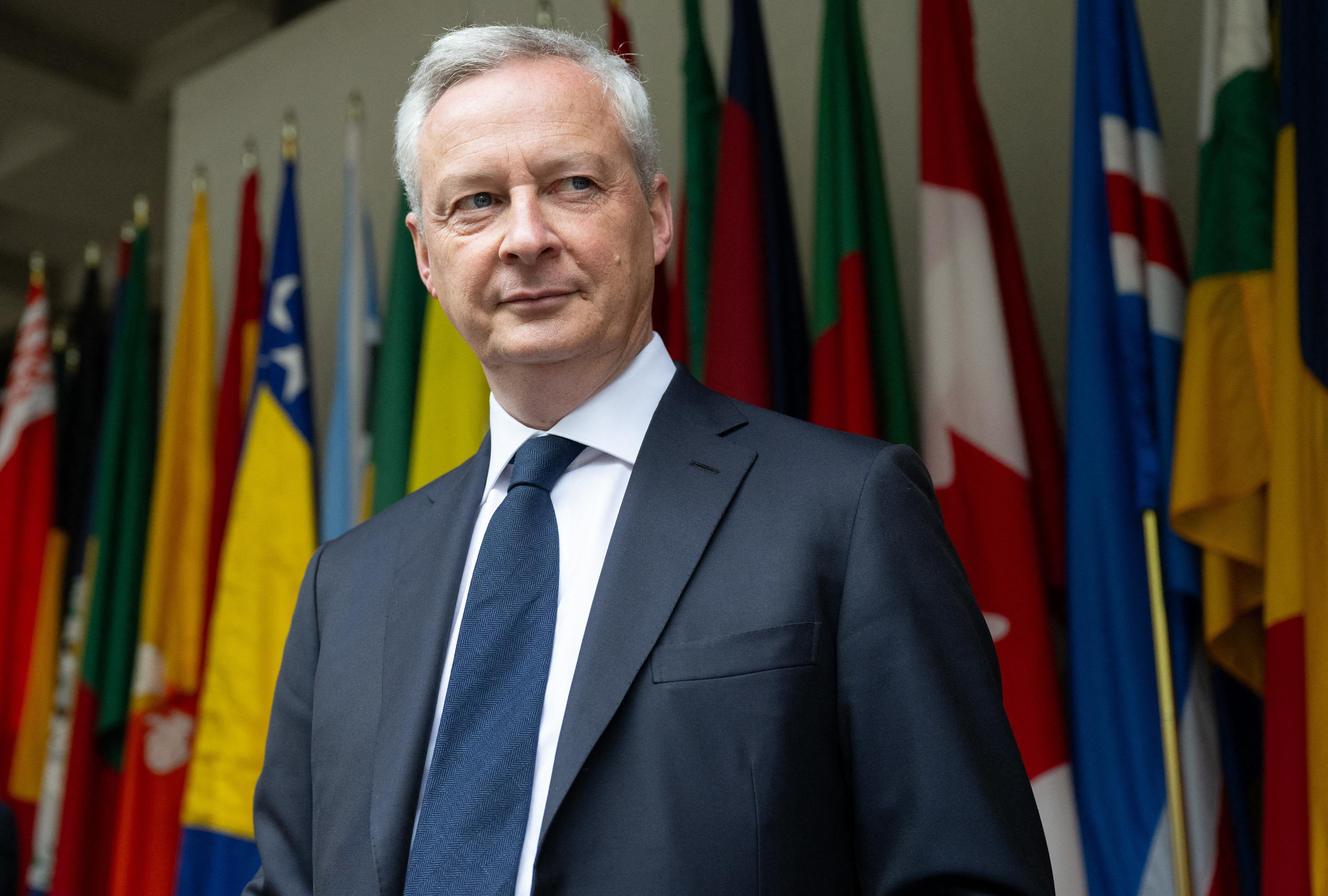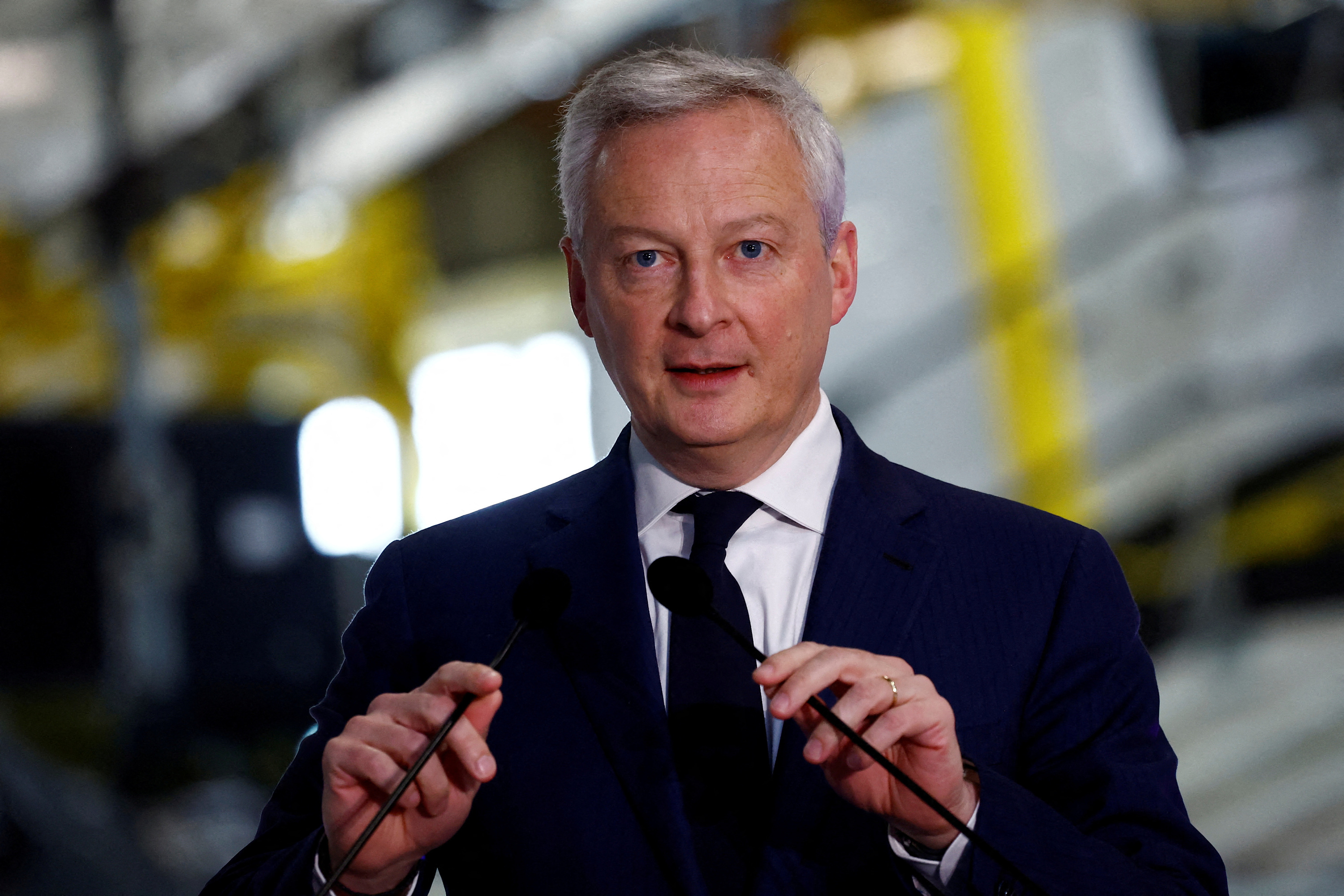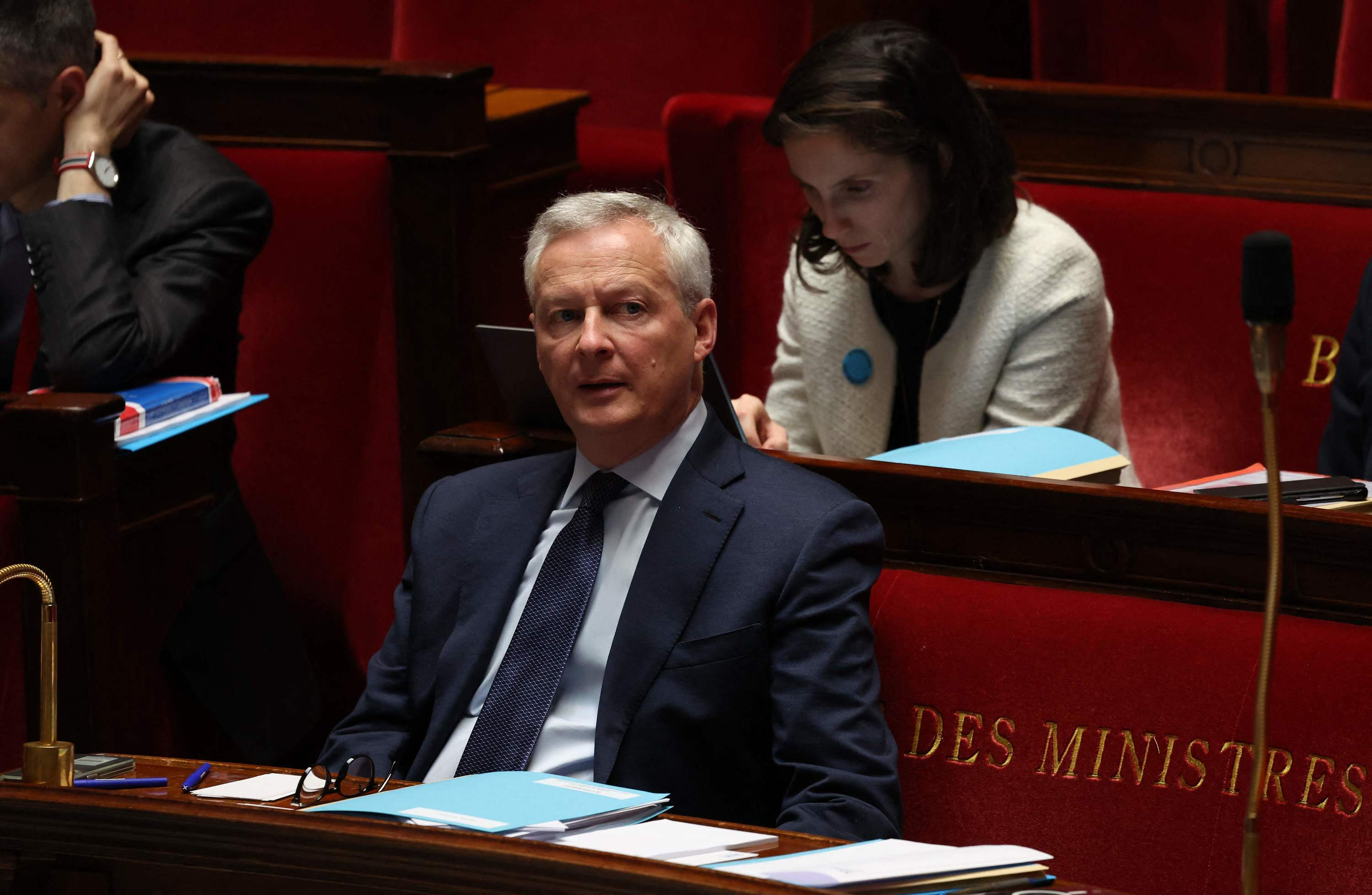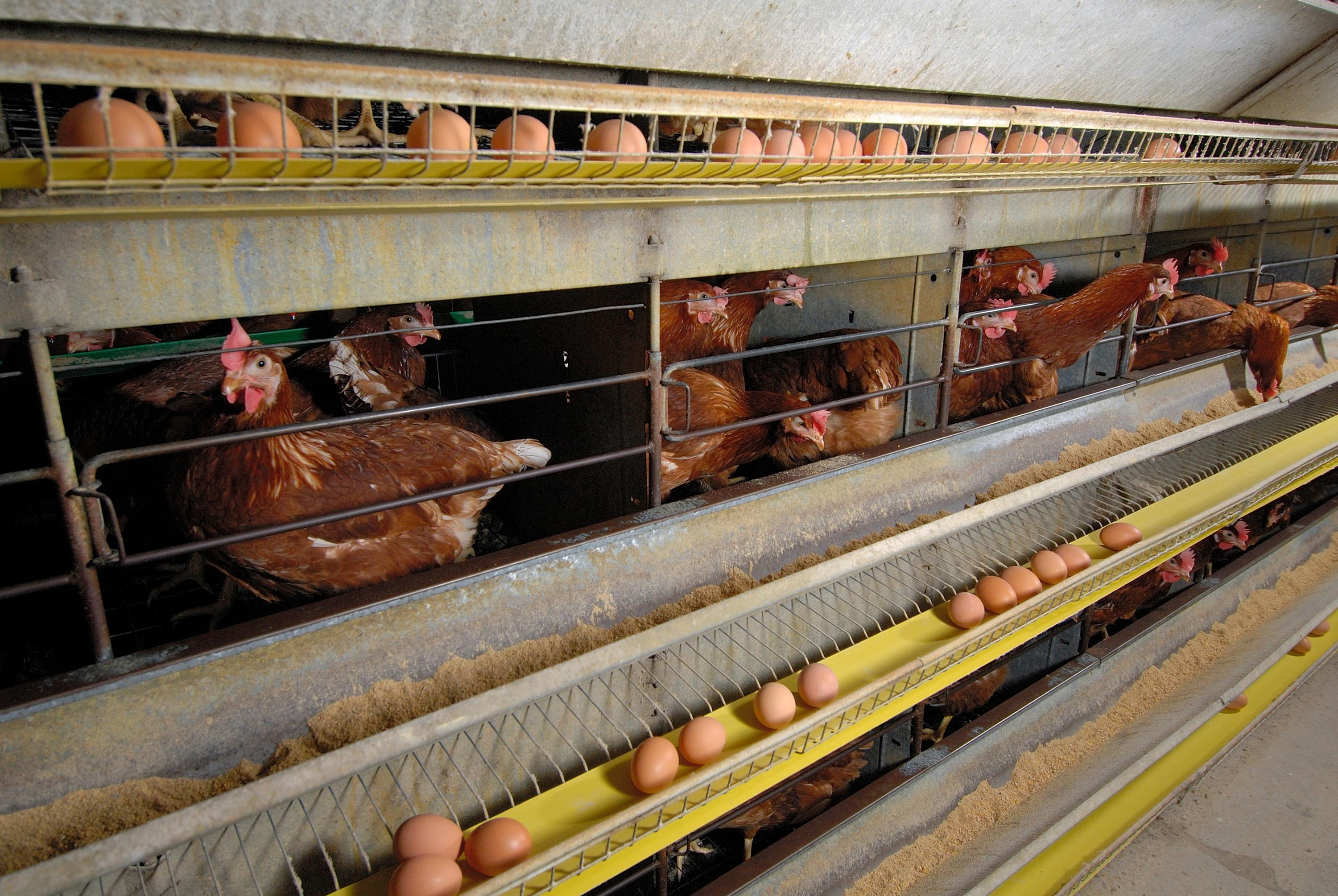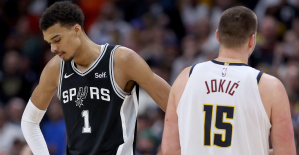In a broad interview with The Associated Press Rafael Mariano Grossi stated that he wanted Iran to know there was no way around his inspectors at The International Atomic Energy Agency if it wanted to be "respected country" in the "community of nations".
Grossi, a high-ranking hotelier in Abu Dhabi, said, "We must work together," after visiting the country's first nuclear power station. They must work together. They must understand that they have a partner in me.
Grossi insisted that Vienna-based IAEA remain "an auditor" for world, as negotiations in Vienna failed to revive Tehran's crumbling nuclear deal. The chief of Iran's civilian nuclear program had insisted that his country refuse to allow the agency access the Karaj centrifuge assembly facility. This was in response to what Iran calls a sabotage attack in June. Iran blamed Israel for the attack amid a wider regional shadow war after former President Donald Trump unilaterally withdrew America's landmark nuclear agreement with world powers. Since then, Iran has refused to allow the IAEA access for cameras that were damaged during the incident.
Grossi stated that the IAEA is not able to see clearly the number of centrifuges and the capacity they might have. It will give you an illusion of the true image. It will not give you the true image. This is why it is so important."
Grossi called "simply absurd" the Iranian claim that saboteurs used IAEA cameras in the attack at the Karaj centrifuge station. Although Tehran has not provided any evidence supporting the claim, it is another indication of friction between Iran and inspectors.
Iran has begun enriching uranium to 60 percent purity since the collapse of the nuclear deal -- a small technical step away from 90% weapons-grade levels. The agreement limited enrichment to just 3.67%, which is enough to use in a power station. The stockpile of enriched Uranium in the United States is growing beyond the limits of the 2015 agreement, which required Tehran to reduce its nuclear program in exchange for economic sanctions being lifted. The deal also bans it from spinning ever-more sophisticated centrifuges.
Grossi stressed that he was not involved in the Vienna political negotiations, but he acknowledged that Iran's progress since the collapse of the deal meant that there would need to be modifications to the original agreement.
He stated, "The truth is that we're dealing with a very diverse Iran." "2022 is very different from 2015. We will need to make adjustments so that our inspectors can inspect what the countries have agreed at the political table."
While Iran claims its program is peaceful and has denied any involvement in it, U.S. intelligence agencies as well as the IAEA claim that Iran had an organized nuclear weapons program from 2003 to 2003.
Grossi stated that Iran is the only country capable of making nuclear weapons and enriching uranium to such high levels. "I have repeatedly said that Iran doesn't possess a nuclear weapon. It does however mean that this level enrichment requires a rigorous verification effort."
Grossi's comments were not immediately addressed by the Iranian mission to United Nations.
However, there is increasing anxiety among European countries at the negotiating table in Vienna. Since the abandonment of the accord, the U.S. has not been involved in direct negotiations.
They warned that the deal would soon be an empty shell if it is not made quickly, given Iran's rapid-forwarding of its nuclear programme.
Ali Bagheri Kani, Iranian negotiator, responded to criticism by writing on Twitter: "Some actors persists in their blame-game habit, instead real diplomacy."
The Iranian negotiators, who entered the talks for only the second time in months under the new hard-line President Ebrahim Rashi, have taken extreme positions. Bagheri Kani described six rounds of negotiations under President Hassan Rouhani's team as "drafts."
Grossi responded to questions about the differences between the administrations by saying that the "change is palpable."
He stated that "the president and his entourage have been stating very clearly their views on the program." "They have strong views regarding the interactions that Iran's been having" with the IAEA as well as the parties to the nuclear agreement.
He described the Raisi administration's cooperation as "slower that expected."
Grossi stated that they were able to establish this relationship "quite late"
Satellite photos taken by the AP from the mountains south of Iran's Natanz nuclear plant show construction. This mountain has been twice the site of suspected Israeli attacks. A second above-ground facility is being constructed at Iran's underground Fordo plant, which has also started uranium enrichment during the Vienna talks.
Grossi stated that Iran had informed the IAEA of the ongoing construction, and that his inspectors are "following" the progress at the sites.
Saudi Arabia is exploring nuclear power. Saudi Arabia, unlike the UAE which has an agreement with the U.S. to ensure it doesn't enrich its uranium, says it wants a centrifuge programme. This opens up the possibility of nuclear proliferation, as Saudi Arabia has threatened to rush for a nuke weapon if Iran gets one. Grossi called the discussions between Riyadh, IAEA and "very positive."
Israel is long considered to be a nuclear-armed country. A massive construction project continues at the secretive nuclear reactor in Dimona. It is not under IAEA surveillance. Iran frequently refers to Israel's weapons programme as an international double standard given Tehran's civilian program.
Grossi answered a question about Israel by saying: "I think that the international community would like all countries to sign the treaty on non-proliferation nuclear weapons and put all facilities under safeguards of the IAEA."
He stressed the importance to ensure that IAEA inspectors are able to access Iran's rapidly-accelerating nuclear program without restriction.
He said, "The problem with this is that the longer you wait, the less accurate your records become. Once this ability is restored, inspectors return and begin to put together the puzzle again." There might be gaps. These gaps are not good to have."

 What is chloropicrin, the chemical agent that Washington accuses Moscow of using in Ukraine?
What is chloropicrin, the chemical agent that Washington accuses Moscow of using in Ukraine? Poland, big winner of European enlargement
Poland, big winner of European enlargement In Israel, step-by-step negotiations for a ceasefire in the Gaza Strip
In Israel, step-by-step negotiations for a ceasefire in the Gaza Strip BBVA ADRs fall almost 2% on Wall Street
BBVA ADRs fall almost 2% on Wall Street Sánchez cancels his agenda and considers resigning: "I need to stop and reflect"
Sánchez cancels his agenda and considers resigning: "I need to stop and reflect" The Federal Committee of the PSOE interrupts the event to take to the streets with the militants
The Federal Committee of the PSOE interrupts the event to take to the streets with the militants Repsol: "We want to lead generative AI to guarantee its benefits and avoid risks"
Repsol: "We want to lead generative AI to guarantee its benefits and avoid risks" Osteoarthritis: an innovation to improve its management
Osteoarthritis: an innovation to improve its management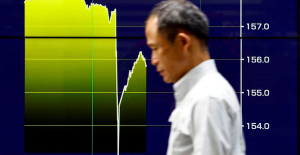 The yen jumps 3% then falls again, amid speculation of Japanese intervention
The yen jumps 3% then falls again, amid speculation of Japanese intervention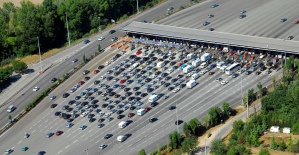 A very busy Friday on the roads of Île-de-France before the Ascension Bridge
A very busy Friday on the roads of Île-de-France before the Ascension Bridge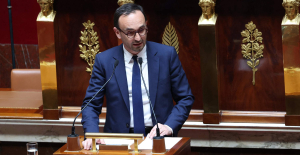 Fraud: the government is preparing new measures for the fall
Fraud: the government is preparing new measures for the fall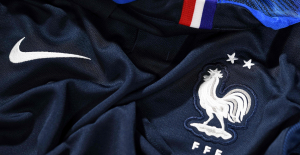 Nike breaks the bank to keep the Blues jersey
Nike breaks the bank to keep the Blues jersey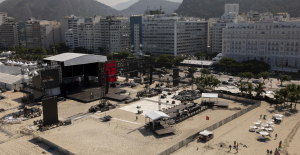 Madonna ends her world tour with a giant - and free - concert in Copacabana
Madonna ends her world tour with a giant - and free - concert in Copacabana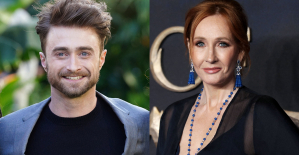 Harry Potter: Daniel Radcliffe “really saddened” by his final breakup with J.K. Rowling
Harry Potter: Daniel Radcliffe “really saddened” by his final breakup with J.K. Rowling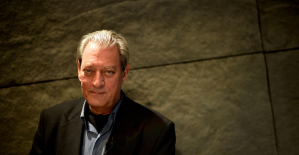 Leviathan, New York Trilogy... Five books by Paul Auster that you must have read
Leviathan, New York Trilogy... Five books by Paul Auster that you must have read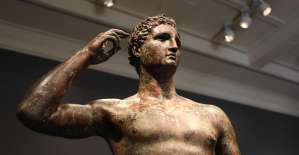 Italy wins a decisive round against an American museum for the restitution of an ancient bronze
Italy wins a decisive round against an American museum for the restitution of an ancient bronze Omoda 7, another Chinese car that could be manufactured in Spain
Omoda 7, another Chinese car that could be manufactured in Spain BYD chooses CA Auto Bank as financial partner in Spain
BYD chooses CA Auto Bank as financial partner in Spain Tesla and Baidu sign key agreement to boost development of autonomous driving
Tesla and Baidu sign key agreement to boost development of autonomous driving Skoda Kodiaq 2024: a 'beast' plug-in hybrid SUV
Skoda Kodiaq 2024: a 'beast' plug-in hybrid SUV The home mortgage firm rises 3.8% in February and the average interest moderates to 3.33%
The home mortgage firm rises 3.8% in February and the average interest moderates to 3.33% This is how housing prices have changed in Spain in the last decade
This is how housing prices have changed in Spain in the last decade The home mortgage firm drops 10% in January and interest soars to 3.46%
The home mortgage firm drops 10% in January and interest soars to 3.46% The jewel of the Rocío de Nagüeles urbanization: a dream villa in Marbella
The jewel of the Rocío de Nagüeles urbanization: a dream villa in Marbella Europeans: a senior official on the National Rally list
Europeans: a senior official on the National Rally list Blockade of Sciences Po: the right denounces a “drift”, the government charges the rebels
Blockade of Sciences Po: the right denounces a “drift”, the government charges the rebels Even on a mission for NATO, the Charles-de-Gaulle remains under French control, Lecornu responds to Mélenchon
Even on a mission for NATO, the Charles-de-Gaulle remains under French control, Lecornu responds to Mélenchon “Deadly Europe”, “economic decline”, immigration… What to remember from Emmanuel Macron’s speech at the Sorbonne
“Deadly Europe”, “economic decline”, immigration… What to remember from Emmanuel Macron’s speech at the Sorbonne These French cities that will boycott the World Cup in Qatar
These French cities that will boycott the World Cup in Qatar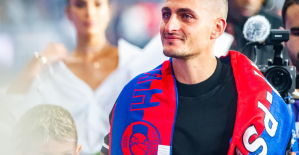 Mercato: Verratti at Barça? A track studied
Mercato: Verratti at Barça? A track studied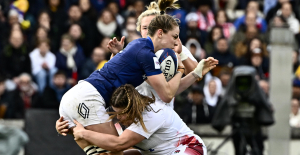 Rugby: after the defeat during the Six Nations, the Blues will meet the English in September for a test match
Rugby: after the defeat during the Six Nations, the Blues will meet the English in September for a test match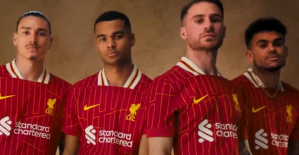 Premier League: Liverpool unveils its new jersey for next season
Premier League: Liverpool unveils its new jersey for next season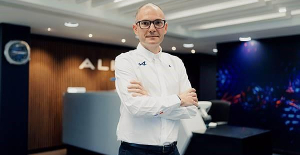 Formula 1: Alpine holds its new executive technical director
Formula 1: Alpine holds its new executive technical director




